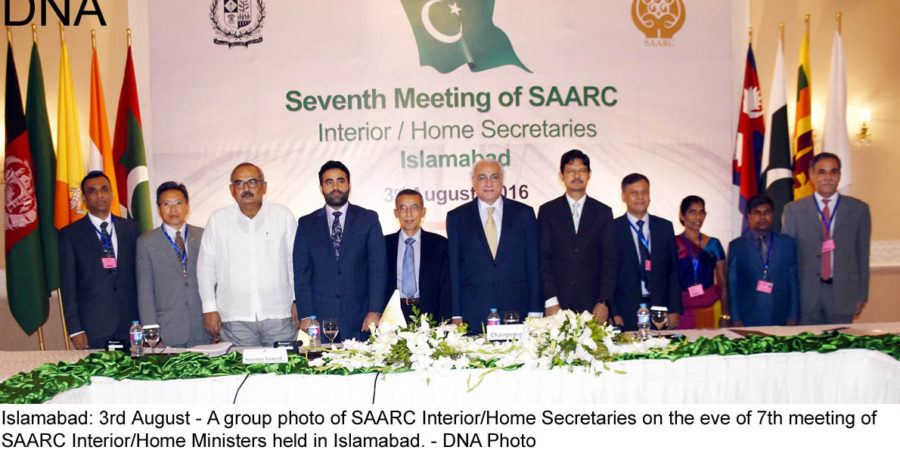SAHR reminds SAARC ministers human rights tasks

LAHORE, 03 AUG (DNA) -: South Asians for Human Rights (SAHR), a regional network of human rights defenders, draws the attention of the Home Ministers of the SAARC countries gathered in Islamabad, Pakistan, to serious issues that threaten the promotion of human rights, democracy and peace in the region.
Human rights defenders across South Asia continue to be harmed through acts of enforced disappearances, physical attacks and threats, arbitrary arrest and detention, judicial harassment and intimidation and even killings in an effort to silence their voices and discredit their work. SAHR sees a deliberate policy of governments to impose unreasonable restrictions through laws and policies that curtail freedom of association, assembly and the right of NGOs to solicit international cooperation for the promotion and protection of human rights.
Failure of South Asian States to address the menace of extremism and the growing culture of impunity for attacks on human rights defenders, academics and intellectuals has resulted in a rapidly shrinking space for dialogue and activism on human rights and social issues.]
Women HRDs face an additional threat when defending the rights of women or during any engagement on human rights, from states as well as non-state elements. SAHR calls upon all South Asian countries to review their policies aimed at subjecting civil society organisations to harsh restrictions and instead create enabling environment for them.
Torture and enforced disappearances, both amounting to serious international crimes, are endemic in all countries in the region and invite a strong indictment of these states. Counter-terrorism and national security laws and policies in most of these countries have enabled and, in some cases, encouraged enforced disappearances, especially during times of civil conflict and strife.
SAHR calls upon all South Asian governments to address this grave issue with commitment and to install effective measures, including addition of enforced disappearance as an offence to the national penal laws. SAHR welcomes ratification of the International Convention for the Protection of All Persons from Enforced Disappearances by Sri Lanka in May this year, and hopes that other states in the region will soon follow this example.
SAHR reminds all South Asian governments that several border issues in the region require immediate attention and speedy resolution to improve the situation of people of this region, who confront serious violations of their rights as a consequence of these persisting issues. The plight of fishermen from one country arrested for straying into marine space of another, or those inadvertently crossing international boundaries into a neighboring state, or victims of human trafficking within the region is not unknown to South Asian governments.
The processes for exchange of prisoners, particularly between Pakistan and India, have become protracted and increasingly complicated. SAHR invites governments in the region for a dialogue with civil society groups to identify and understand the issues and to find human rights compliant solutions to resolve them.
Finally, SAHR regrets the continued failure of South Asian governments to establish better systems of communications to enable travel between the countries in the region. People to people contact and regular civil society interaction, is adversely affected owing to this continuing situation.
Visa regimes for travel between countries have become even more restricted. Even visa schemes that had been agreed upon between India and Pakistan for facilitating travel were not implemented and have finally been cancelled. SAHR urges South Asian Governments to address this issue on a priority basis.
We hope that the ministerial conference being held in Islamabad will give due consideration to the issues that are of deep concern to the civil society and the human rights community in all the SAARC countries. We expect our governments will respect people’s aspirations for closer regional contacts and linkages and will join the civil society endeavor for regional solidarity for promotion of peace, democracy and human rights by ending violence, intolerance, exclusion and discrimination. DNA
Related News
Rana Mashhood Meets Italian Ambassador Armellin
Rana Mashhood, Italy’s Ambassador Armellini Discuss Trade, Education, Legal Labor Mobility and Youth Cooperation toRead More

Pakistan hockey players revolt against management
In response to the players’ bold stand and the mounting public outcry, the Pakistan SportsRead More


Comments are Closed